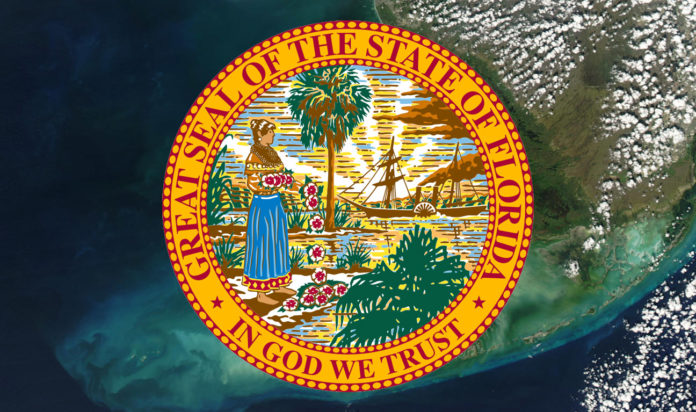By Sara Matthis and Jim McCarthy
Home rule is the ability of local governments — think the City of Key West or Monroe County — to tailor laws to fit their unique environment and constituents; that’s above and beyond what state law stipulates. It is a part of the state constitution, added in 1968 — Article VIII, Section 2(b). The opposite of home rule is called preemption — the legislature overturning home rule because it conflicts with state policy.
Some think the state’s preemptive strike against vacation rental law is too radical to come to fruition. But consider that in 2017, the state did the very same thing when it came to transportation network companies — Lyft and Uber. It struck down local governments’ laws regarding the regulation and number of taxis to allow Lyft and Uber into every city.
“The preemption wave seems to get larger and larger every session,” remarked Monroe County Commissioner Danny Kolhage at last week’s meeting. “Where is this stuff coming from? Do these people (legislators) live in another state?”
Commissioner Heather Carruthers concurred. “The state bristles when the feds get in their way, but they are happy to get into ours,” she said at the same meeting.
Here’s a look at current preemption legislation:
SB 824 & HB 987 — Vacation rentals
These bills would preempt the regulation of all vacation rentals to the state and would repeal the exemption for a local law, ordinance or regulation adopted before June 1, 2011. Monroe County’s legislative affairs director Lisa Tennyson said this bill appears to be stopped by an unpopular amendment that would require tracking the lessees of vacation rental homes to ensure that sexual predators are kept out. It’s an unwieldy requirement that demands time-consuming verification processes. Despite some concern surrounding the amendment, legislators will likely be drawn to consider keeping local neighborhoods safe from felons who could gain access to them on a transient basis.
The bill in the Senate has stalled in the Innovation, Industry and Technology Committee. In the House, similar legislation was added on April 17 to the calendar for second reading.
The state first passed vacation rental law in 2011, but the Keys municipalities and county’s laws already on the book were “grandfathered,” or exempt from the new regulation. The 2019 bill would remove that grandfather status and open the Keys to vacation rentals with no limits on frequency or duration of vacation rentals.
HB 7103 – Affordable housing & development
This bill would preempt local laws that regulate the ratio of market rate housing and affordable housing; i.e., the requirement for local developers to set aside a certain number of units for affordable housing for rent or sale.
According to Tennyson, the bill is moving in both houses. The bill in House awaits consideration for representatives. On April 18, it was ordered to the special order calendar for April 24. Several amendments have been filed since being placed on the calendar.
“State Rep. Holly Raschein has filed an amendment that would carve us out of the worst of the provisions, because we are an Area of Critical Concern,” Tennyson said. She added that if the bill DID pass, it would be unclear how that would play out in the Keys as the Keys’ entire permitting system revolves around an affordable-market ratio. “Affordable housing is one of the guiding principals of the state Area of Critical Concern.”
SB 336 & HB 5 — Sales tax referenda
If passed, this bill would require any local sales tax referendum question to appear only during major elections, and would require a two-thirds majority to pass. It would also force a county to make the proposed referendum and a specified legal opinion available on its official website. Local governments often pass a discretionary sales tax to pay for necessary projects — such as neighborhood school construction or sewer projects.
“In 2018, there were 11 local referendum questions on and 10 passed,” said Tennyson. “While communities are generally against taxation, they seem to support it when it’s clear what the tax will pay for specifically and understand the specific benefit to the local community.”
By requiring the super majority to pass, this bill would put taxation back almost exclusively in the hands of state legislators. An analysis on the bill states that 56 counties and 19 school districts levying one or more discretionary sales surtaxes were projected to realize $3.38 billion in revenue from local fiscal year 2018-19. If all counties and school districts levied discretionary sales surtaxes at the maximum possible rates, they would have been projected to raise $14.32 billion in fiscal year 2018-19.
The Senate bill was placed on the calendar on April 22 for second reading. The House passed similar legislation April 11 with a 69-44 vote.
Senate passes firefighters cancer bill
The Senate unanimously passed legislation that would grant certain benefits to a firefighter upon receiving a diagnosis of cancer, if certain conditions are met. The bill also requires an employer to make certain disability payments to a firefighter in the event of a total and permanent disability, and provides death benefits to a firefighter’s beneficiary if a firefighter dies as a result of cancer or cancer treatments.
With a 38-0 vote, state Sen. and co-sponsor Anitere Flores said legislation is a win for the state and for an altruistic profession that overwhelmingly merits full support.
“The Florida Legislature gave our brave firefighters a vote of confidence and passed legislation to aid them in their hour of need,” she said. “The unanimous vote in favor of SB 426 gives our brave men and women in fire service the benefits they deserve.”

























